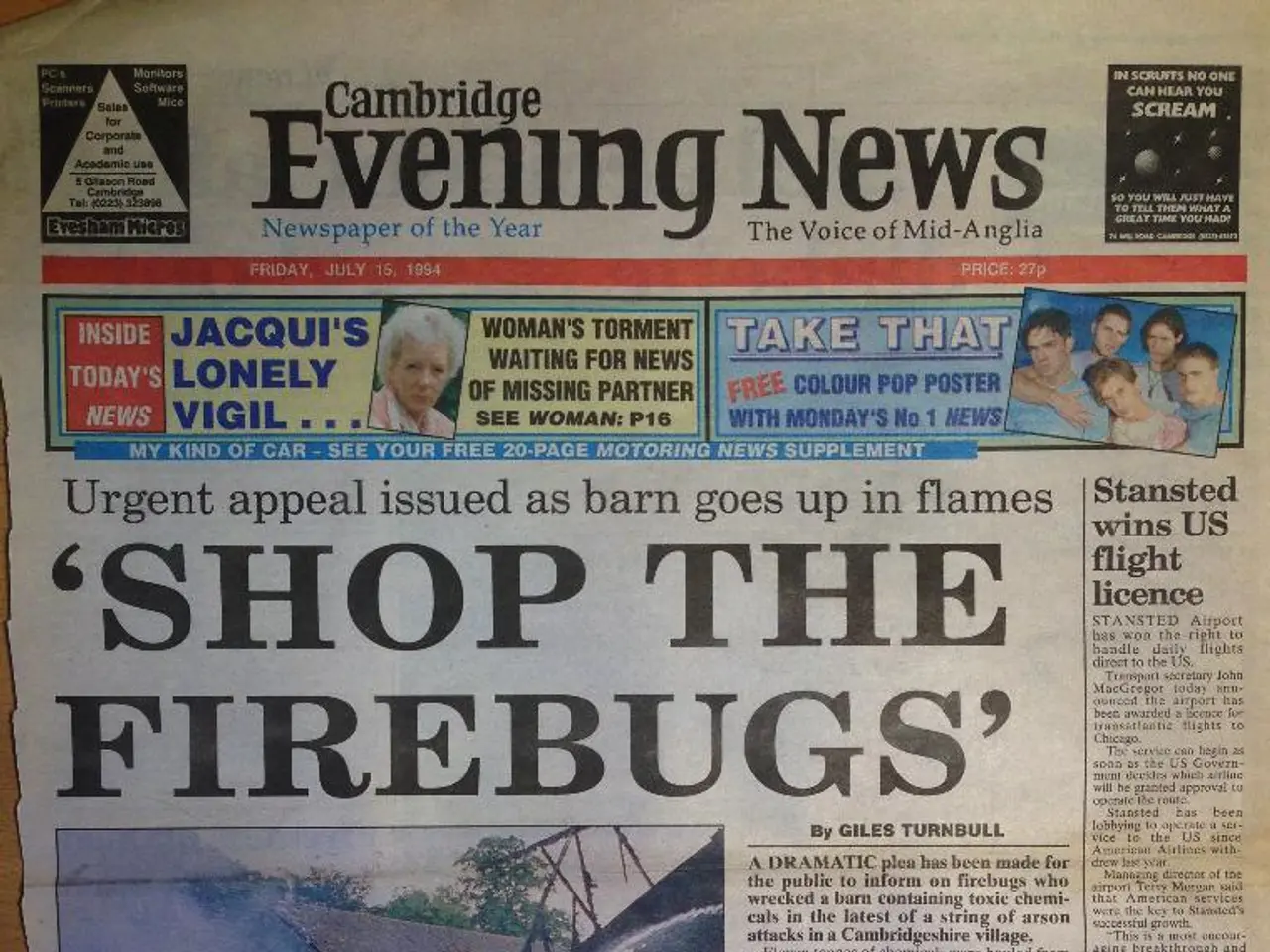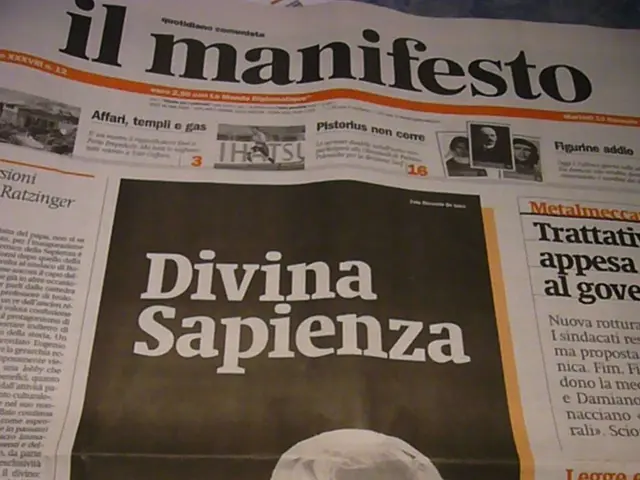In the UK, Starmer asserts the necessity of safeguarding free speech, yet acknowledges boundaries exist in its application.
In a recent development, Irish comedian Graham Linehan was arrested by five armed police officers from the Metropolitan Police at London Heathrow Airport on September 1. The arrest was prompted by three posts Linehan made on social media platform X regarding transgender issues.
The incident has raised questions about how existing laws apply online and has brought attention to the challenges in balancing free speech and criminal content on social media. The police have defended the arrest, stating that their officers are in an "impossible position" arbitrating between the two.
The case highlights the need for clear guidelines on how to balance free speech and criminal content on social media, a topic that has been a subject of debate in recent years. The previous government abandoned an attempt to ban content deemed harmful but legal due to concerns about curbing free speech.
Prime Minister Keir Starmer, who expressed support for both free speech and protecting children from harm, has not explicitly discussed the Linehan case in his previous statements. He has, however, stated that free speech is a founding value of the United Kingdom that is protected fiercely.
Starmer has drawn a limit between free speech and the speech that encourages pedophilia or suicide on social media. Encouraging self-harm has been made a criminal offense under the Online Safety Law, but the law does not address the specific issue of balancing free speech and criminal content.
It is important to note that the Linehan case does not involve the encouragement of self-harm or pedophilia, as stated earlier. The police did not specify the exact laws that were applied in the case.
The new Online Safety Law requires social media companies to remove illegal content on their platforms, but it remains to be seen how it will be enforced and how it will impact free speech online. The Linehan case serves as a reminder of the complexities involved in regulating online content and the need for clear guidelines to ensure that free speech is protected while also safeguarding vulnerable individuals from harm.
In conclusion, the arrest of Graham Linehan has brought attention to the challenges in applying existing laws to social media and the need for clear guidelines on balancing free speech and criminal content online. The Linehan case does not seem to have been explicitly discussed by Prime Minister Keir Starmer in his previous statements about free speech and protecting children from harm, but his stance on the importance of free speech suggests that a balanced approach will be taken in addressing these issues.







